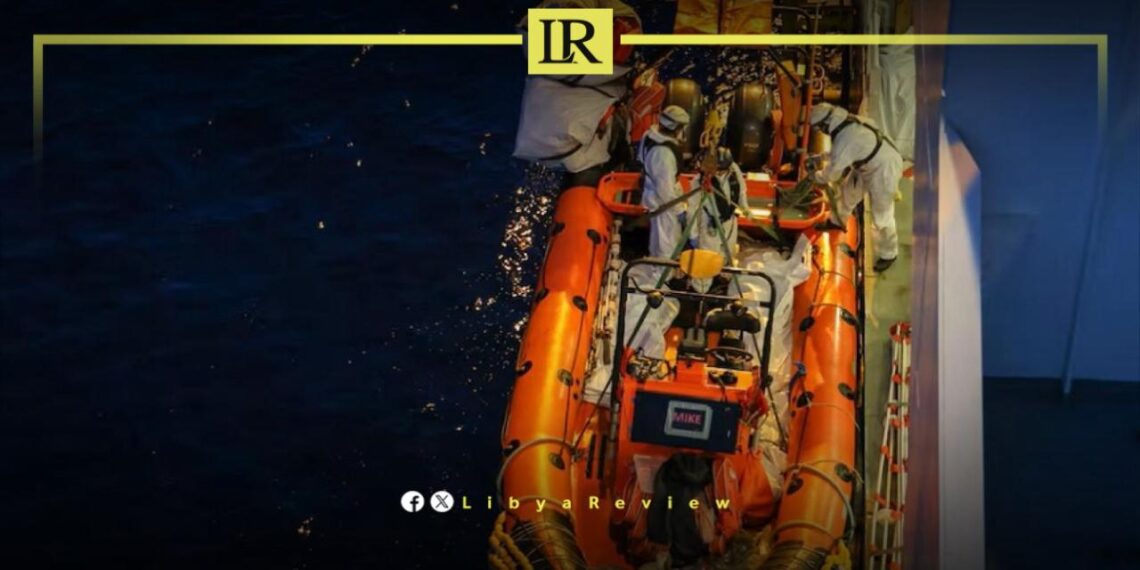The German non-governmental organization Sea-Watch has accused the Libyan Coast Guard, funded by the European Union, of ignoring calls to retrieve the bodies of migrants off the coast of Tripoli. Sea-Watch stated that a team from Médecins Sans Frontières (Doctors Without Borders) ultimately undertook the task, recovering the bodies in a grueling nine-hour operation.
The German organization expressed its condolences to the bereaved families and to those who continue to hope for news about their missing loved ones amid the ongoing uncertainty.
Notably, Médecins Sans Frontières (Doctors Without Borders) (MSF) announced the recovery of 11 migrants’ bodies, washed ashore by the sea off the Libyan coast.
The humanitarian organization shared on the social media platform “X” that after an exhaustive search lasting over nine hours, their vessel, the Geo Barents, successfully retrieved the bodies of 11 individuals who had tragically lost their lives.
On Friday, the German NGO Sea-Watch also reported discovering 11 migrant bodies off the Libyan coast. Their reconnaissance aircraft, “Seabird,” spotted the bodies floating in the water. “We do not know if the bodies found off the Libyan coast are victims of an unknown shipwreck. What is certain is that we are flying over a mass grave that Europe wants,” Sea-Watch commented.
The organization has previously faced threats from Libyan authorities, including a missile threat against one of their planes. Sea-Watch criticized the Libyan coastguards, funded by the European Union, for ignoring their call to recover the bodies. “Our thoughts are with all those grieving and those still hoping amid the uncertainty of knowing their loved ones’ whereabouts,” they added.
The Mediterranean Sea continues to be one of the deadliest migration routes globally. Italy’s Interior Ministry reported a significant decrease in sea arrivals in 2024, with 21,792 people reaching Italy between January 1 and June 7, compared to 53,270 during the same period in 2023. Despite the decrease, the dangers remain ever-present. In 2023, the International Organization for Migration reported 3,041 migrants missing after attempting the perilous Mediterranean crossing.
This tragic incident highlights the broader humanitarian crisis in the Mediterranean. Migrants from Africa and the Middle East continue to risk their lives in search of safety and better opportunities in Europe, often falling victim to human traffickers and treacherous sea conditions. The European Union’s strategy of funding the Libyan coastguard to manage migration flows has been controversial, with numerous reports of human rights abuses and negligence.
The discovery of these bodies serves as a grim reminder of the ongoing migrant crisis and the urgent need for comprehensive and humane solutions. As long as instability, conflict, and poverty persist in their home countries, migrants will continue to brave the dangerous journey across the Mediterranean, often with fatal consequences.


